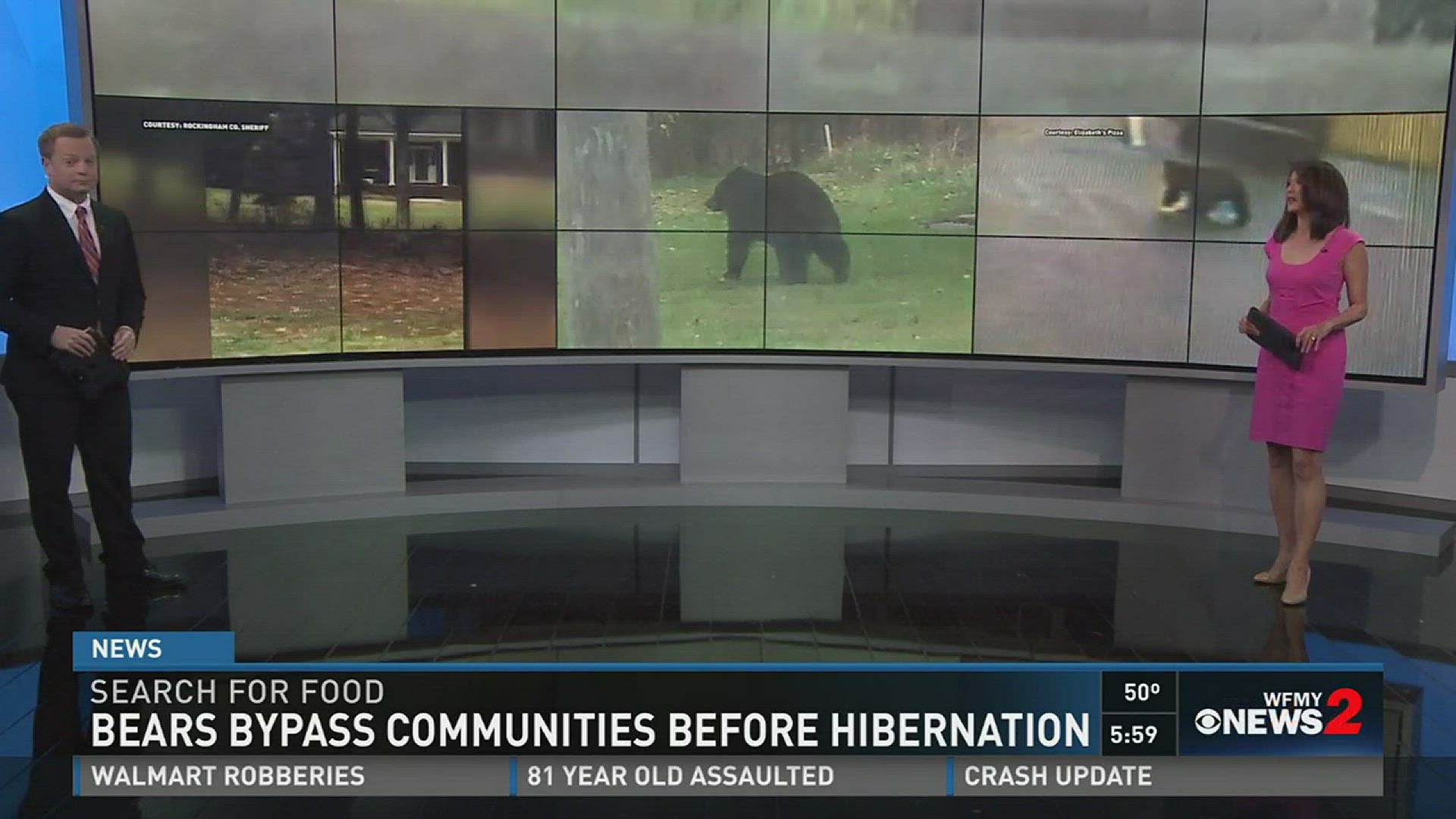They're popping up in all the unlikely places - parking lots, schools, front yards. We're talking about black bears.
In Rockingham County, more black bear sightings have had communities buzzing. The Sheriff's Office is even increasing patrol around schools during arrival and dismissal just to play it safe.
But should people be worried?
"They are desperately trying to put on weight right now," explains Rick Betton, Chief Operating Officer at the Greensboro Science Center. "In just a few weeks the bears are going to go into dens and they're going to stay there for a couple of months."
Betton is a bear expert, having studied North Carolina black bears during graduate school. He says before they hibernate, they need to pack on the pounds for energy through the winter. They're typically on the prowl for acorns, but when that supply runs low, they could venture to other places.
"They will absolutely eat people food," Betton explains. They'll eat garbage, they'll raid bird feeders for suet and even for seed."
That's what leads bears to areas they typically don't go. They're more likely to wander through more rural communities, closer to the forests. But keep in mind, the bears are after food, not people.
"They're not really aggressive," says Betton. "These are black bears. They're not the grizzly bears where you hear of the bear attacks all the time."
Even so, Betton and law enforcement say it's still best not to approach if you see them.
So for now, you'll just have to bear with them. They should be going into hibernation in a couple of weeks.
"The main thing is just give them space," Betton adds.
Most of North Carolina's bear population lives in the Eastern and Western parts of the state. When they do migrate through the Tria, they usually aren't staying very long. Betton says they'll likely hibernate in the east or west or head north to the Virginia mountains for the winter.

